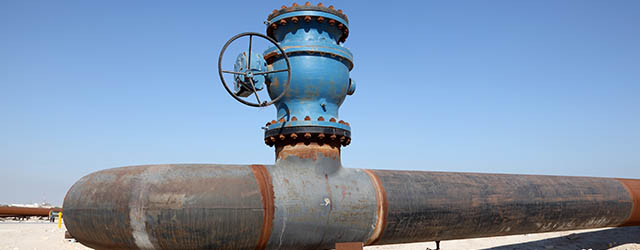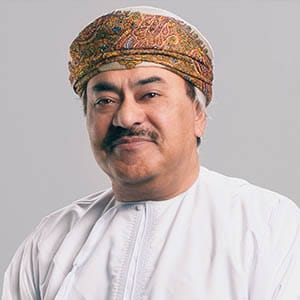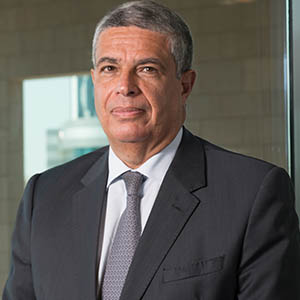GCC countries are weathering low oil prices surprisingly well, cushioned by sovereign funds, economic diversification and development.

Table Of Contents
The GCC countries are well prepared to ride out oil shocks—just as they have in the past. They can do it because they have funneled huge sums of money into sovereign wealth funds over the years. Those funds continue to provide a comfortable cushion against volatility in the oil market.
Oman has one of the highest break-even oil prices in the GCC and is running a substantial budget deficit. Economists say it will have no problem financing its deficits in the near term, however, thanks to its sovereign wealth fund and strong credit rating.
AbdulRazak Ali Issa, CEO of BankMuscat, says the Omani banking sector “has adequate liquidity and financial strength to continue supporting economic diversification and development projects, which will positively contribute to the economy in the coming years.”
Driven by a favorable operating environment, the banking sector is expected to see healthy growth. Credit growth at the sultanate’s conventional banks was 11.6% at an annual rate in the first quarter and is projected at about 10% for 2015, he says.
So notwithstanding volatile oil prices, Oman’s government will continue to administer development projects as planned. Public spending is projected to rise 4.5% this year, and growth opportunities abound, Issa says. Oman is moving aggressively to find alternatives for oil and gas revenues by investing in ports, logistics hubs, fisheries, tourism and other sectors, he says.
Bahrain, which has a break-even oil price of around $100 per barrel, has one of the more diversified economies in the GCC.
“Oil prices are likely to have a moderate impact on Bahrain’s economy, which is not completely dependent on oil, with substantial contributions from the financial services, manufacturing and construction sectors,” says Adel El-Labban, group CEO of Ahli United Bank. He said financing the budget deficit has never been an issue for the government, in domestic or international markets, noting that, “Since 2009, it successfully issued five international bonds and established a yield curve for its issuance.”
The GCC development fund and other infrastructure projects have created a robust pipeline that will continue to generate demand for private-sector credit, El-Labban says. The richer nations of the GCC set up a $20 billion fund, following the Arab Spring uprisings in 2011, to help Bahrain and Oman create jobs and build affordable housing.
“Construction and infrastructure growth accelerated considerably in 2014 and will continue to do so in 2015, as projects financed through the GCC fund continue to come on line,” El-Labban says. “Work has begun on a number of projects in key sectors, such as housing, sewage, roads, health and education.”
The Gulf countries clearly feel that pushing up prices now would simply encourage further development of unconventional sources of oil, which would ultimately threaten their long- term position in the market.
~ Tuvey, Capital Economics
Hussain Al Qemzi, CEO of Noor Bank in Dubai, says oil revenues account for less than one-third of the UAE’s GDP, owing to economic diversification, making the country less vulnerable to price swings. A recent drop in Dubai property prices is related to central bank measures that have helped remove much market volatility by discouraging speculators.
Noor Bank has had stable growth in its home finance business, “which leads me to believe that the Dubai property market will continue to grow at sustainable and levels,” Al Qemzi says.
Noor Bank’s recent $500 million global sukuk (the equivalent to a bond in Islamic finance) was well received around the world, with 45% allocated to European and Asian investors.
Dubai is on track to become the capital of the Islamic economy, with initiatives like the Dubai Global Sukuk Centre, the Global Islamic Economy Summit, and the Islamic Economy Awards, he adds. “Much work is being done on developing international standards not just in finance but in other areas, such as halal food processing and logistics.”
The Dubai International Financial Centre has attracted a large number of international insurers—AIG, Zurich, Allianz, MetLife, Swiss Re and Munich Re—that offer retakaful (Islamic finance reinsurance) alongside their conventional insurance products.
Table Of Contents

The Arab Gulf countries are in a strong position to absorb the hit to their income from a period of low oil prices and can afford to take a longer-term view of the market, says Jason Tuvey, Middle East economist at Capital Economics in London.
“The Gulf countries clearly feel that pushing up prices now would simply encourage further development of unconventional sources of oil, which would ultimately threaten their long-term position in the market,” Tuvey says.
According to Saudi Petroleum and Mineral Resources minister Ali Al-Naimi, oil consumption in advanced economies has increased sharply since prices started to fall last June.
“Saudi Arabia has defied the worst fears that a period of low oil prices would push its economy into recession—if anything, growth appears to have strengthened since the start of this year,” Tuvey says.
Meanwhile, the Organization of Petroleum Exporting Countries is continuing to pump oil at a rapid pace to maintain its dwindling market share and to pressure higher-cost producers, particularly the US shale-oil industry.
“Producers will likely continue to focus on efficiency gains and shift their rigs to core areas, where initial production rates are more favorable,” says Sami Yahya, analyst at Platts’s Bentek Energy. He says US crude production increased by nearly a million barrels a day in the 12 months ending April 2015.

The International Monetary Fund has said the decline in oil prices is resulting in substantially lower export and fiscal revenues for Saudi Arabia, but that the effect on the rest of the Gulf nation’s economy has so far been limited. The organization sees GDP growing at a healthy 3.5% this year, unchanged from 2014, with support from increased oil production and continued government spending.
Tuvey sees Kuwait, with $410 billion in its sovereign wealth fund, as the best-placed Gulf economy to withstand low oil prices. The country is still running a large current-account surplus, although the economy remains sluggish, he says. Its long-term growth outlook is clouded by government spending skewed toward wages and subsidies, rather than capital investment, he says.
The Gulf countries, Tuvey said, should be able to stomach low oil prices for at least a few years, but some adjustment is likely to be needed down the line He thinks fiscal policy “will do most of the work” along with reduction in capital spending and postponing some infrastructure projects.



